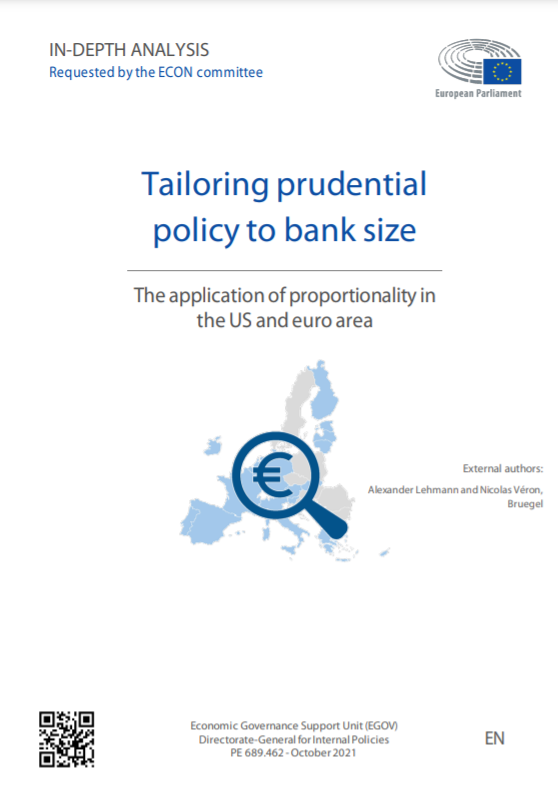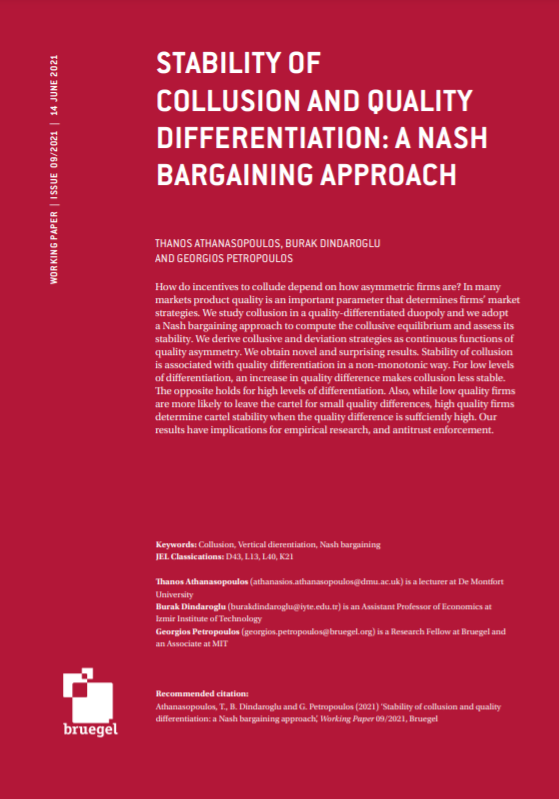Blog Post
Thunderbolts in the patent storm – EU and US antitrust strikes in the Samsung and Google-Motorola cases
Standards and standard-setting processes play a key role in fostering European economic development. Standards ensure interoperability of networks and often give rise to significant reductions in transaction and production costs.
Standards and standard-setting processes play a key role in fostering European economic development. Standards ensure interoperability of networks and often give rise to significant reductions in transaction and production costs. They increase efficiencies, limit asymmetric information between producers and consumers, make it more viable to invest in innovation, and reduce the level of uncertainty in the outcome of R&D efforts. A number of economic studies have identified positive and significant correlations between the growth in a country’s stock of standards and GDP growth. Those studies suggest that a 1 percent increase in the overall stock of standards in a country could be associated with up to 1 percent GDP growth (for a summary, see the European Commission’s staff working paper – page 117 – relative to the proposal for a regulation on European standardisation).
As I wrote already in this column (see my Bruegel blog posts on October 29 and October 30), standards however pose difficult challenges to regulators from the perspective of competition policy. Once competing technologies are eliminated in favour of the selected standard, companies are equipped with a powerful weapon that could potentially be used for anticompetitive purposes. Confident that no other alternative technology is still available, a patent holder may force a licensee to pay excessively high rates to access the standard technology. This is what the European Commission and the US Federal Trade Commission (FTC) fear could have happened in the Samsung and Google-Motorola cases.
Just before Christmas, the European Commission said it had sent a Statement of Objections to Samsung (see Europa Press Release of December, 21). This means that, according to the Commission, the investigation has yielded enough evidence to support a preliminary finding that Samsung has violated antitrust rules. Now it is time for Samsung to be confronted with the Commission’s theory of harm.
The Commission accuses Samsung of having abused its dominant position as the holder of patents essential to the 3G standard and encumbered by Fair, Reasonable and Non-Discriminatory (FRAND) commitments. Samsung allegedly did so by attempting to bloc Apple’s mobile phones sales through injunction relief sought in the courts in five EU member states. This would have enhanced Samsung’s bargaining power and allowed Samsung to impose access rates higher than FRAND (see further the Q&A webpage of the European Commission).
Google-Motorola may also face a similar scenario in the near future, given that an investigation for the very same type of alleged infringement was started by the Commission in April last year. Last week in the US, the FTC said it had struck a deal with Google on these matters. Google committed to not seek injunction relief for its FRAND encumbered patents against ‘willing licensees’. The FTC developed a mechanism preventing Google from seeking an injunction if a potential licensee is willing to accept determination of FRAND terms by arbitration or court (see the FTC consent order, particularly the template commitment to abide to an external source of FRAND determination at page 16).
The FTC-Google deal is likely to affect the European Commission investigation, even though the Commission may deem the US remedies not sufficient to dispel all its competition concerns. It is useful to recall that on December 18 Samsung withdrew all its injunction requests against Apple in Europe. That did not spare Samsung from receiving the Statement of Objections three days later.
The competition authorities on both sides of the Atlantic may have a point. With the deal struck with Google, the FTC implicitly reserves to antitrust control a role which is subsidiary to the one exerted by courts, thereby taking itself out of the direct clash over technology access price determination. The European Commission specifically indicates that “the Commission initiated the case on its own initiative”, despite Apple’s formal complaint. Together with the indifference shown by the Commission towards Samsung’s withdrawal of injunction requests against Apple, this may suggest that the Commission is worried about the potential anticompetitive effects that the threat of injunction might have had overall on downstream players, not necessarily only on Apple. That would further justify the Commission’s action, because it would be easier to show that consumers were harmed if smaller downstream players were also affected by Samsung’s behaviour and antitrust control was not enforced.
Given the plethora of actual or potential cases related to abuse of standard-essential patents, antitrust authorities cannot possibly act on all of them. Therefore, the question is whether competition enforcement is an answer and, if yes, which cases merit the attention of competition authorities. In other words, which cases are more likely to imply consumer harm.
A policy contribution from Bruegel is forthcoming.
Republishing and referencing
Bruegel considers itself a public good and takes no institutional standpoint. Anyone is free to republish and/or quote this post without prior consent. Please provide a full reference, clearly stating Bruegel and the relevant author as the source, and include a prominent hyperlink to the original post.












